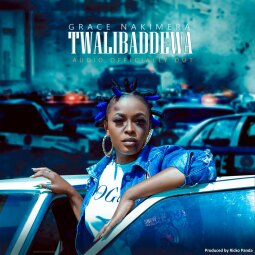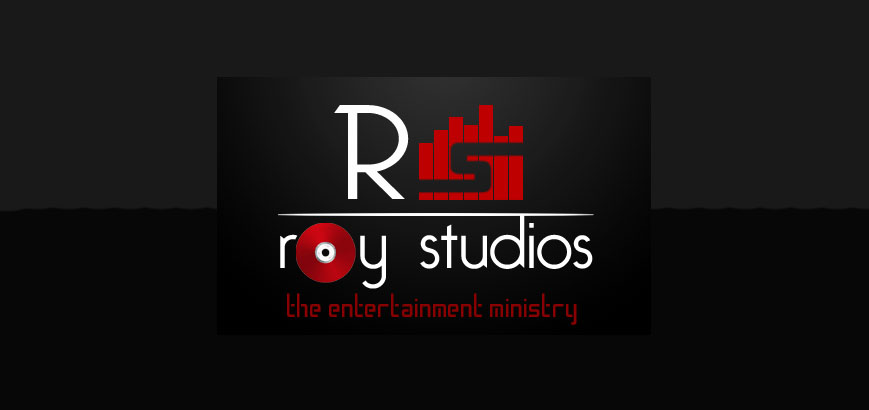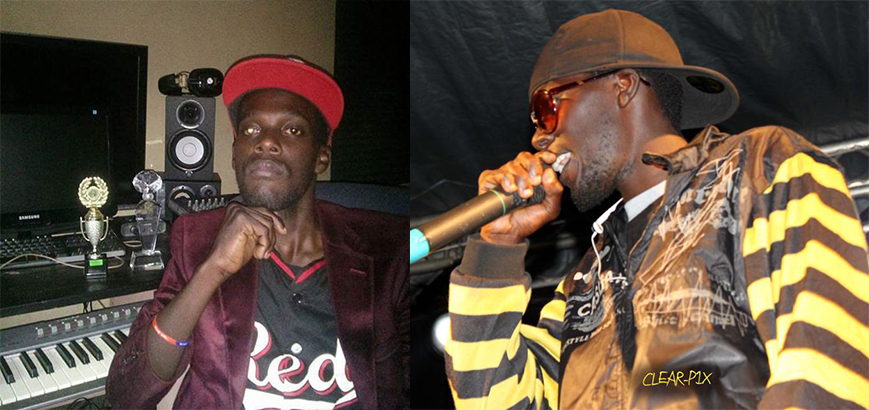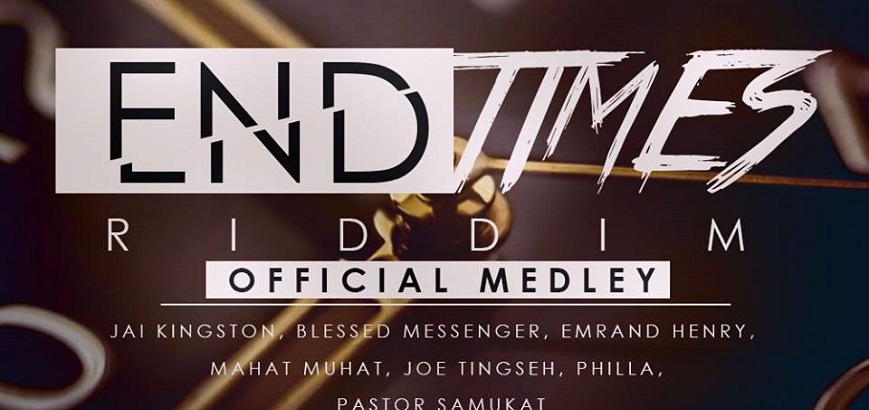Top 10 Ways To Promote Your Music

Marketing your music is essential if you want to get there and actually affect many as you also to start making money from your talent(ministry), so if these are some of your aims, be sure to read and implement as much of this guide as humanly possible. In other words, all of it. And if you find it useful, please share it with friends or talk about it on your website. So, let’s get into the promotion tips.
1. Market Yourself As A Business To Business Musician Ok, so here’s a huge tip I can give you: Instead of focusing all of your efforts on reaching out to all your fans individually, focus a lot more of your efforts on building up good relationships with other businesses! So I know some of you will be wondering what I mean by this. What I mean is that you should spend a good portion of your time contacting promoters, event organizers, radio stations, websites that cover your genre of music in some way, TV channels, DJs, musicians who are more established than you, and the like. What do all of the above have in common? They have a much bigger audience than you, and within their audiences are people who will fit into your ideal fan base! While a lot of musicians spend lots of time grinding it out trying to make new fans one by one, more successful and full time musicians often spend more time building up relationships with people who can get their music out there better than they can. The thing is, if you get in good with bigger companies and they recommend you to their audience, you’ll get a lot more exposure from that one article / event / show / interview than you would from spending a month on Facebook and Twitter trying to get new fans from scratch. That’s why it’s worth investing time and effort into forming these kinds of relationships. Now I’m not saying don’t market to fans individually. You should, but usually only once they’re already on your social sites and mailing list. In terms of actually getting people to hear you the first time around, getting other established businesses to promote you is one of the best ways to go about doing this. So switch your target audience and start focusing more of your efforts on other businesses. And remember, as a musician, you are a business!
2. Focus A Good Portion Of Your Time On Gigging. Gigging is one of those golden activities every musician should be doing! Not only can it be great for raising awareness of your brand, but it can also be monetized in multiple ways, and help you build a strong relationship with your core audience. Now playing gigs isn’t anything new or ‘out there’. That said, it’s something that works, and works well. In terms of promotion, some of the best gigs you can do are events which have other acts in your genre also playing at the event. This will mean the audience will contain one or two types of people who you’ll want to target: Fans of other musicians in your genre, or Fans of your genre in general. For gaining NEW fans, this is the kind of audience you want! While for increased revenue you’d want to put on your own gigs and make it all about you, you won’t get very many people first discovering your music at these kind of gigs. Because of this, they won’t do much in terms of increasing your fanbase. When playing at shows with multiple artists however, you have a good chance to get your music in front of new targeted music fans. Gigging is great for both gaining new fans and making money from the music industry, so be sure to get your gigging game on!
3. Post Content Regularly On Your Own Professional Website With so many new acts coming out every day, it can be hard to stay top-of-mind. Yes, someone might hear one of your songs and like what you’re doing, but if you don’t keep giving them more content and keep them entertained in some form of another, there’s a good chance that they may forget you. It’s because of this that you’ll want to take advantage of your website, and employ a good ‘content marketing‘ strategy. Content marketing as described on Wikipedia is: “any marketing format that involves the creation and sharing of media and publishing content in order to acquire customers” In other words, you want to use your content to get in new fans and to keep existing fans happy. But what kind of content can you publish? Here are some types of content you should be creating: Songs. This is the obvious one. Videos. Another obvious one. Blog posts to do with your music career. So what you’re working on, where you’ll be performing, asking fans for their opinions on things, etc. Blog posts related to your genre of music. You can get a lot of people finding out about you by publishing content related to your genre as a whole rather than just you as a musician. More on this later. As I mentioned, the majority of content should initially be going on your own website. This will help build your website up into a valuable asset, and one that will go a long way to getting new fans as well as keeping existing ones happy. If you haven’t yet made a site, you can see how to make one here.
4. Be More Than A Musician This is a big one, so listen up. If you want to get as much exposure for your music as possible, you’ll really want to make yourself more than just a musician! What do I mean by this? Well, you want to do everything you can to get yourself out there and in front of a targeted audience. And by everything, I mean things that aren’t directly related to promoting yourself as a musician (but that will still get new targeted eyes to you and your music). The good news for you is, not many musicians are doing this. This means there are a lot of opportunities out there if you use this tactic correctly. Some ways you can do this include: Talking About More Than Just Your Music On Your Site Remember the above point about posting more content on your site? Well who’s to say that you have to talk about you all the time? By talking about other acts and your genre of music in general, not only do you have more content to share with your audience, but you’ll have more things which you can rank for in search engines. This will mean more traffic to your site in the long-run, as you’ll be using relevant terms which people will be searching for to find your kind of music. This strategy is definitely worth using, so get started with it asap! Creating A Platform Related To Your Genre Of Music This is something I’ve talked about and helped people do in the Full Time Musician course. So taking the above theory even further, why not create a website or podcast which you target at people who like your kind of music? This can be a music review podcast, a radio show which showcases your genre, or even a website which generally covers everything in your music scene. Furthermore, it could even be something not 100% related to your genre that a lot of people in your genre also like. So if you make music skateboarders often listen to, you may want to make a skateboarding site and play your music on the site and in the videos. You’ll also want to include a shop page where people can buy your music, and possibly even start selling skateboarder related merchandise with your logo on it. Doing these kinds of things will get you in front of people you wouldn’t have otherwise, and allow you to showcase your music to new people who are largely interested in your genre.
5. Use A Mailing List As my regular readers will know, I’ve been banging on about this for as long as this site has been around. Having a newsletter which people can join is one of the best ways to not only communicate with fans, but to also build up relationships with them and turn those relationships into profitable ones. Once people visit your website, the last thing you want them to do is leave and never return again. This is where mailing lists come in! If you can get people to sign up to your list before they leave, you’ll have their email address. From here you can communicate with them on a weekly basis, and remind them about you and your music. The following strategy on swapping their email address for a freebie works very well. If you haven’t set your own newsletter up yet, you can see how to do so here.
6. Never Make Any Weak Moves! Ok, so this one is more of a tip of how not to promote your music. That said, focusing on not losing fans is just as important as gaining new fans (I should have made that point 7 ;)). If you can make good songs but also make the occasional dud, it’s important to know what to do with that dud song. Even if you’re spent money to record it, don’t use it. Don’t give it out to fans. Instead, put it in a deep folder in your computer that will never be found by anyone! This song will do you more harm than good, and work at chipping away at your reputation. Similarly, when you’re starting to do well, it’s easy to want to scale up quick, or rinse and repeat what’s been working for you. This is a good idea, but only if you don’t let the quality of what you’re doing slide. In general, you want to avoid doing anything that will have a negative impact on your reputation. You want people to think of you as one of the best musicians in your genre, and you want to give people who haven’t heard you before the best first impression. If you’re putting out weak songs though or weak artwork, a percentage of people will first hear you through that weak song, and possibly never give you another chance. So keep everything you’re doing to a consistently high level, and people will regard you as a higher quality of musician.
7. Make Great Music If you don’t make great music, nothing will ever change in your music career. As an independent musician, you’re fighting an uphill battle by default. You’re competing for the attention of people who are constantly being bombarded with top 40 chart-topping hits. The bottom line is this – if you don’t go above and beyond the call of duty to write incredible music, your chances of being noticed are slim. You need to “wow” people with your music to draw them in! My friend, Hello Moth, recently co-wrote a song that became a hit. And you know what he said? “After all this time, it’s still about having one good song.” If you’ve been in the music industry for any length of time, you’ve heard that before. To make it big, you just need one song that captures people. As it turns out, this is still relevant advice today. Additionally, without great music, a lot of the strategies mentioned in this guide won’t work for you. Gigging is great, and it will help you make money and improve as a performer, but if you don’t make music people care about, it doesn’t matter how often you play. You can make as many industry connections as you want, but if they don’t feel like your music is up to their standards, there’s no incentive for them to help you promote it. There is a fanbase for every type of music, but finding your audience is a lot of work. So it makes good sense that you’ll more readily stand behind a quality product than a product that’s subpar. And the same goes for your fans and the connections you make too. They’ll support something that’s great, but not something that’s just okay.
8. Define Roles Within Your Band & Build A Killer Team If you’re in a band, then you need to figure out who can do what in terms of creating content, managing your social media sites, marketing, updating your website, and so on. If you’re a solo artist, you need to build a team. And building a team is ultimately something you’ll want to do regardless of the size of your act. Is there someone in your band that’s great with social media? Fantastic – have them manage your online presence. if you dont have we recoment you to contact this ompany for help HERE. Is there someone else that’s technically proficient, and has all the gear necessary to record videos? Great, get them to start making engaging content for YouTube. There’s always the chance that no one in your band knows the first thing about marketing or building a website. First and foremost, you are a musician, so you may not have many strengths outside of playing an instrument or singing. The key, then, is to figure out what everyone’s good at, and what they’re interested in learning. It doesn’t make sense to force a band member into doing something they don’t even want to do, so determining everyone’s strengths upfront is an important step. This is something the band The Middle Coast does very well, and if you go to the contact page on their website, you can even see that each member has a clearly defined role – like Maestro Samuel and Allan Dereal handle our booking, and others do everything else. It’s simple, but it works. Then, as you become more successful, and you build a bit of a budget, you’re going to want to start growing your team. As a starting point, you can outsource tasks you don’t like doing or ones you’re not good at. This gives you more time to focus on creating. Working with freelancers and contractors is a good way to get started, and you can find plenty of them on Upwork. Then, when you’re ready, you can start working with publicists, booking agents, managers, and so on. The reason this works is because it gives you a foundation from which to execute your marketing strategy in a coordinated, organized, consistent way. And consistency is key when it comes to spreading the word about your music.
9. Find A Great Publicist & Work Closely With Them If you’ve ever listened to Music Business Radio, you’ll notice that there is a common theme among some of the most successful artists – most if not all of them work with a publicist! Things have changed a lot with public relations (PR) in recent years. Online press releases used to help you get the attention of the media, for potential interviews and news coverage. Today, press releases actually do more to boost your SEO – they help you rank for particular keywords, and when they’re published and distributed to a large network of sites, you also get links pointing back to your site! To overcome obscurity as an artist, it takes more than just luck and being at the right place at the right time. Gigging might lead to some great exposure opportunities, but chances are they won’t, unless you’re playing well-known venues, or venues where industry people are known to gather. You need to create newsworthy stories on a regular basis, engage the media, and develop awareness for your music, tours, special events, releases, awards, and so on. A lot of artists wonder about the effectiveness of getting coverage on music blogs, podcast and radio interviews, or entertainment magazines. To be fair, you won’t have access to the best publications when you’re just getting started. But there are two things you need to keep in mind: Content that goes up online often stays up for a long time. This gives people an opportunity to discover you over and over and over again, long after the publish date. You’re building connections with industry influencers. Once in their good graces, you would have to screw it up pretty bad to fall out of their graces. If they like you, they’ll keep covering you, and they may even be able to connect you with other industry people, or provide you with resources that can help you.
10. Capture Behind-The-Scenes Footage & Share It With Your Fans Video is a powerful promotional tool. But the right kind of video? That makes all the difference. One thing that’s fascinating to fans – and will always be fascinating to fans – is the recording process. There’s a lot of mystery and intrigue about the gear being used, mic techniques, how certain sounds were achieved, and so on. And even if not for that, people love to see how their favorite songs came together in the first place. These types of videos are great for your fans, because they offer insights into who you are as well as their favorite music, but can also convert new fans, because they see you putting in the hard work to create a great product. Music is a strange thing, and first impressions may stay with you, but they aren’t always right. I remember not liking Lil Joe when I first heard him, mostly because of his first production. But watching Lil joe videos convinced me that he was an amazing great blessed highly favoured talented artist, and I’ve been a fan of him ever since. Plus, you can turn your video into a DVD using a service like CreateSpace, and give it away as a bonus, or even monetize it by selling it to your fans. The cost of putting together great video could be significant, so if you don’t have a budget, don’t try to implement this strategy just yet. But when you’re ready to take things to the next level, make sure to capture professional footage from your next major recording session.
Conclusion So as you can see, this isn’t the average ‘promote your music online with Facebook and Twitter’ guide. I hope it’s shown you that there’s more to music marketing than the advice you hear thrown around on most other music advice sites, and I hope you now trust us enough to impart other wisdom on you in future. If so, be sure to like our official facebook page GMP Promotions
to be informed on when top new guides come out. So what do you think about the above strategies, have you tried any of them before? Are there any other ways to promote your music that have worked well for you? Let us know in the comments. And please share this guide around if it’s been useful. Remember though, none of what you’ve learned will matter if you don’t know how to get your music out there and make people WANT to hear it. Want to learn how to do that? Then get in g\touch with us
freely by emailing us direct via our official email submit@thegmp.biz

LEAVE A COMMENT
This Week's Top Song
Yatonda Omuntu |
Nelima Esther
Downlod Song
Play Song
Trending
RECENT SEARCHES (0)
VIEW ALLFeatured Song
Twalibaddewa |
Grace Nakimera
Downlod Song
Play Song

TOP VIDEOS (5)
VIEW ALLMUSIC NEWS (5)
VIEW ALL
Rwanda’s Gospel Sensation Israel Mbonyi Set For Ugandan Concert
Born in the Democr ...
All set for the Pr. Joshua Ssempebwa Live In Worship Experience.
Here's everyth ...
EXODUS UNLOCKS A NEW SONG
Celebrated Gospel ...
Presiding Apostle Dr. Joseph Serwadda
Apostle Dr. Joseph ...
Singing Secular Music Means Serving The Devil (Wake Up Call)
King Of Radio Wesl ...MUSIC ARTICLES (5)
VIEW ALL
Retaliation Movie Screening | A Powerful Exploration of Abortion and Human Rights
On May 26th, 2024, ...
Unveiling a new Online Radio | Big Sounds Radio
📻 RADIO is an a ...
A couple of Gospel Artists stand in the Gap
Help or wanting to ...
And behold it's Spirit TV a new Christian television
And behold it' ...





































